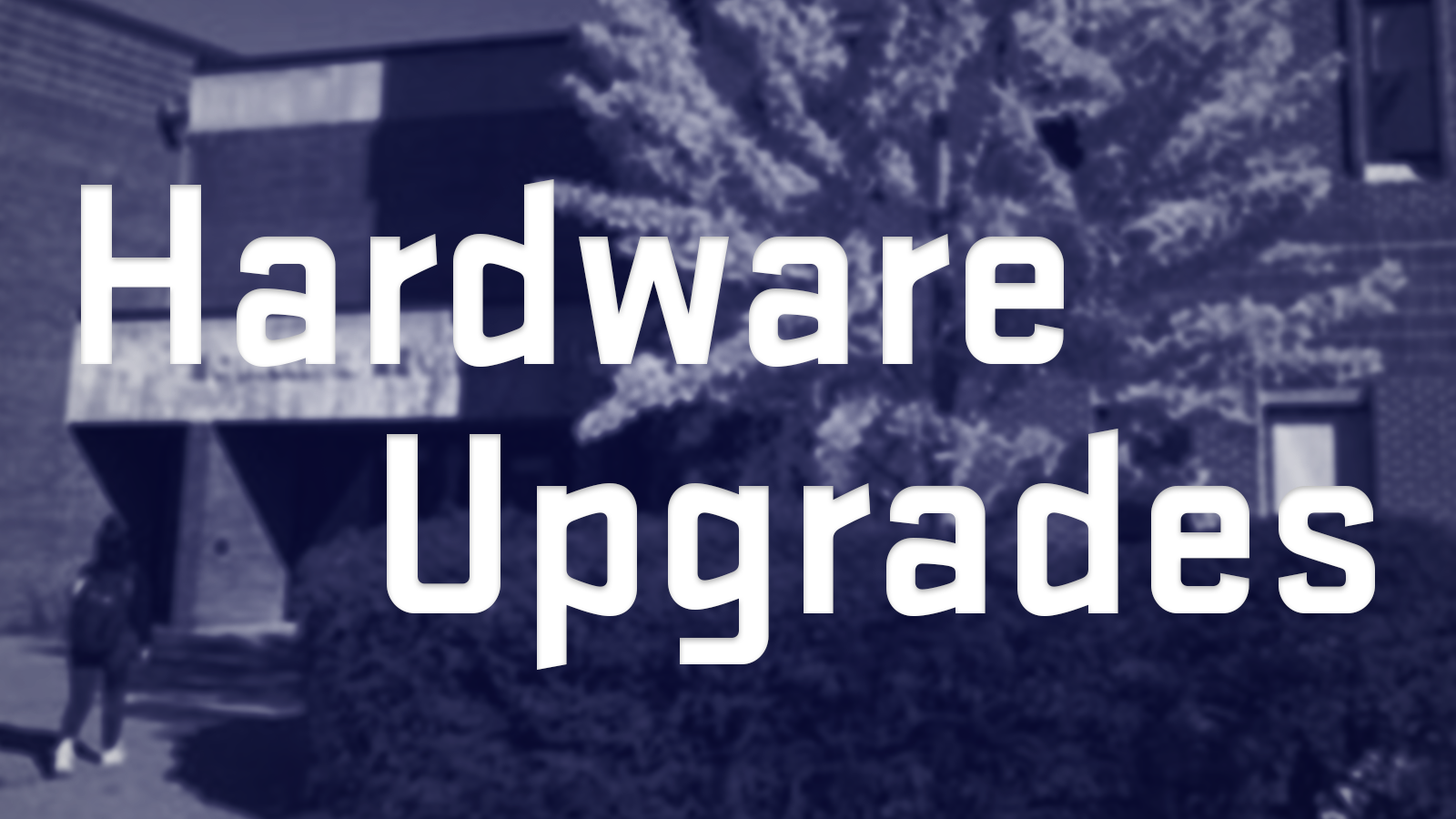
ARCSIM makes upgrades to computing and storage
ARCSIM has worked to bring the University of Maine System state of the art computing systems and the power to help drive research and education in the state. While ARCSIM is able to meet the needs of the system with its extensive computing infrastructure, installed at the University of Maine in Neville Hall, including servers, networking infrastructure, virtual machines, generators and more, ARCSIM is continually making efforts to update and improve these offerings. This approach allows researchers to expand the scope of their research, iterate quickly, and avoid lengthy queue delays. This need has become especially relevant as AI projects demand increasingly greater resources.
Two upgrades have recently been made to ARCSIM’s infrastructure that will aid in this effort. The first upgrade has been the installation of 4 AMD EPYC CPUs with 96 cores on an individual chip. This offers higher and more efficient performance than previous on-premise offerings, with two 48 core processors which will continue to operate.
“Researchers iterate a lot and if they have to put something in a queue and the cluster is too busy making them wait that means they are less productive,” explained Chris Dalton, ARCSIM’s cyberinfrastructure engineer. “These are state of the art processing cores. Researchers will get the latest architecture with the fastest results.”
In addition to this upgrade, ARCSIM has installed new storage servers. This brings their raw storage capacity from nearly three petabytes to over seven petabytes. Storage is an important part of ARCSIM’s work as many research projects produce and work with an abundant amount of digital data. While this may be an exorbitant amount of storage now, it will ensure ARCSIM is prepared for the future as there is ever more demand on resources. In the meantime, ARCSIM and the system participate in the Open Storage Networks and Open Science Grid, which allow researchers from across the country to utilize unused resources at other universities and institutes but reserves priority for ARCSIM and the system on their own equipment.
ARCSIM will continue to make strategic investments in its infrastructure as it works to best serve the system’s research and education community. ARCSIM’s team of specialists encourage individuals to contact them if they are interested in utilizing the equipment or learning more about how they can work with ARCSIM on their projects.
You can contact ARCSIM at um.arcsim@maine.edu.
